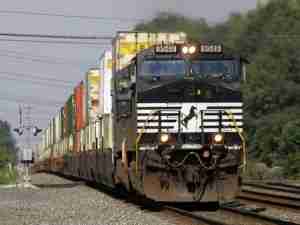The Federal Railroad Administration (FRA) today announced $1.8 million in rail infrastructure funding for Massachusetts. This funding is part of the Consolidated Rail Infrastructure and Safety Improvements (CRISI) grant program. Nationally, the CRISI program awarded 46 projects in 32 states and the District of Columbia more than $368 million. These investments will play a crucial role in modernizing our country’s rail infrastructure and strengthening supply chains to reduce congestion and get people and goods where they need to go faster and cheaper. The program will create good-paying jobs and benefit urban and rural communities across the country.
The selected projects announced today will not only improve and expand passenger rail and fund conventional and high-speed rail, but they will also increase supply chain resilience and fluidity, support short line railroads, invest in in new technology and safety advancements, and benefit rail industry workforce development and training activities – helping to create jobs and increase economic growth.
President Biden’s Bipartisan Infrastructure Law has nearly tripled funding for this critical rail infrastructure program - to $1 billion a year for the next five years. Strengthening supply chains and increasing the productive capacity of the economy are key tenets of President Biden’s plans to get goods from ships to shelves more quickly and lower costs for American families.
“Americans deserve a world-class rail system that allows people and goods to get where they need to go more quickly and affordably, while reducing traffic and pollution on our roads,” said U.S. Transportation Secretary Pete Buttigieg. “We’re proud to award these grants to improve passenger rail for riders and strengthen the freight rail that underpins our supply chains and makes our economy work.”
The Massachusetts Department of Transportation (DOT) was awarded up to $1.8 million to develop preliminary engineering and environmental clearance for track, signal, and infrastructure improvements around Springfield Union Station. These improvements would include additional platforms, additional crossover tracks, storage tracks, a new layover facility, and other work that will support the Amtrak Springfield Line, the CSX Boston Albany Line, and small segments of the former Armory Branch and Knowledge Corridor. The project will improve operational efficiency, reduce travel times, improve passenger accessibility for intercity passenger rail services, and reduce freight and passenger rail conflicts on corridors in the Springfield area. Massachusetts DOT will provide a 50 percent match.
“This round of CRISI grants – one of the largest ever – is a major step forward for FRA and the Biden Administration’s efforts to revitalize and rebuild the country’s infrastructure,” said FRA Administrator Amit Bose. “These awards will allow FRA to support rail projects that have a direct impact on numerous communities nationwide while laying the groundwork for future growth.”
CRISI aims to advance intercity passenger and freight rail projects that promote FRA’s key goals of safety, economic growth, transportation equity, and sustainable and resilient infrastructure. As the nation continues to recover from the COVID-19 pandemic, these upgrades and expansions will help state and local governments and rail carriers meet renewed travel demand and strengthen supply chains.
By statute, a minimum of 25 percent of this funding must be awarded to rural projects, and this announcement includes nearly double the required investment in rural communities, which underscores the Biden-Harris Administration’s commitment to addressing the needs of rural communities. In addition, $87.6 million is for projects that support the development of new intercity passenger rail service, and $25.7 million is for capital projects or engineering solutions targeting trespassing, exceeding the required statutory minimums. Historically, CRISI has funded projects that improve safety and railroad infrastructure, reduce congestion, relocate rail lines, conduct rail-related research, and enhance multi-modal connections between rail and other modes such as ports or intermodal facilities.







